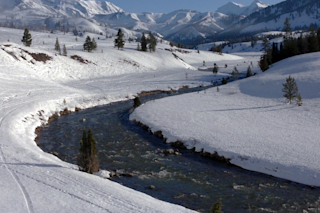You likely don't need me to tell you that in most places, July was frightfully warm. But compared to previous July's, just how bad was it?
An analysis released by NASA has just answered this question: Last month was unlike any of the previous 1,716 months in the agency's climate records. And it wan't even close.
“This July was not just warmer than any previous July – it was the warmest month in our record, which goes back to 1880," says Gavin Schmidt, director of NASA's Goddard Institute for Space Studies, or GISS.
Global temperature anomalies for every July since the 1880s, based on NASA's GISTEMP analysis. Anomalies reflect how much the global temperature was above or below the 1951-1980 norm for July. (Credit: NASA’s Goddard Institute for Space Studies)
NASA’s Goddard Institute for Space Studies
NOAA's independent assessment found essentially the same thing. As the agency put it in ...














